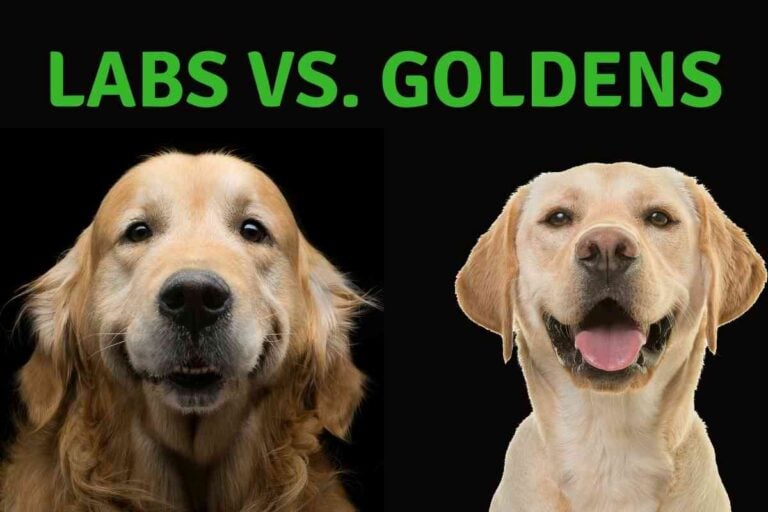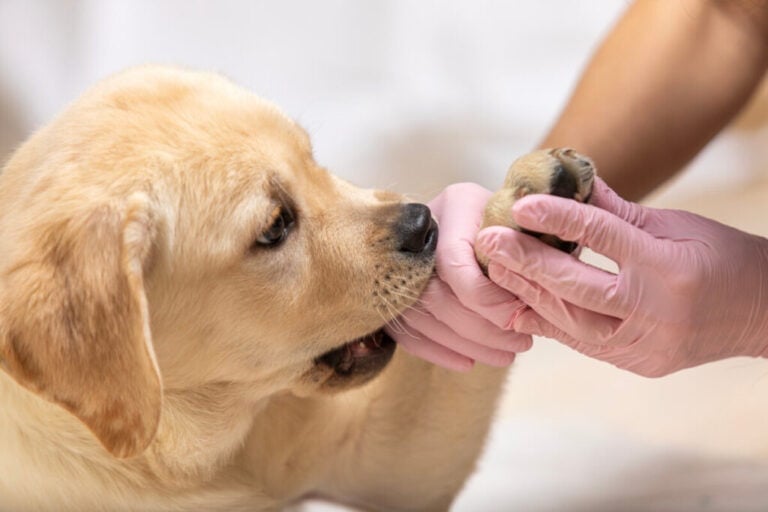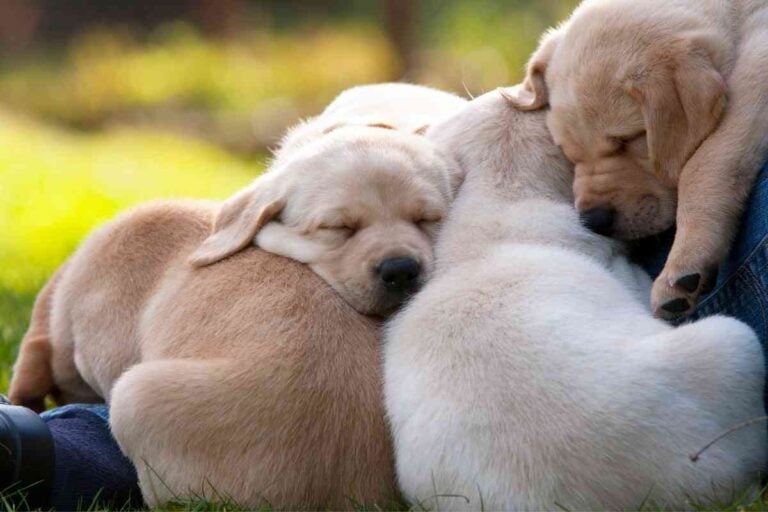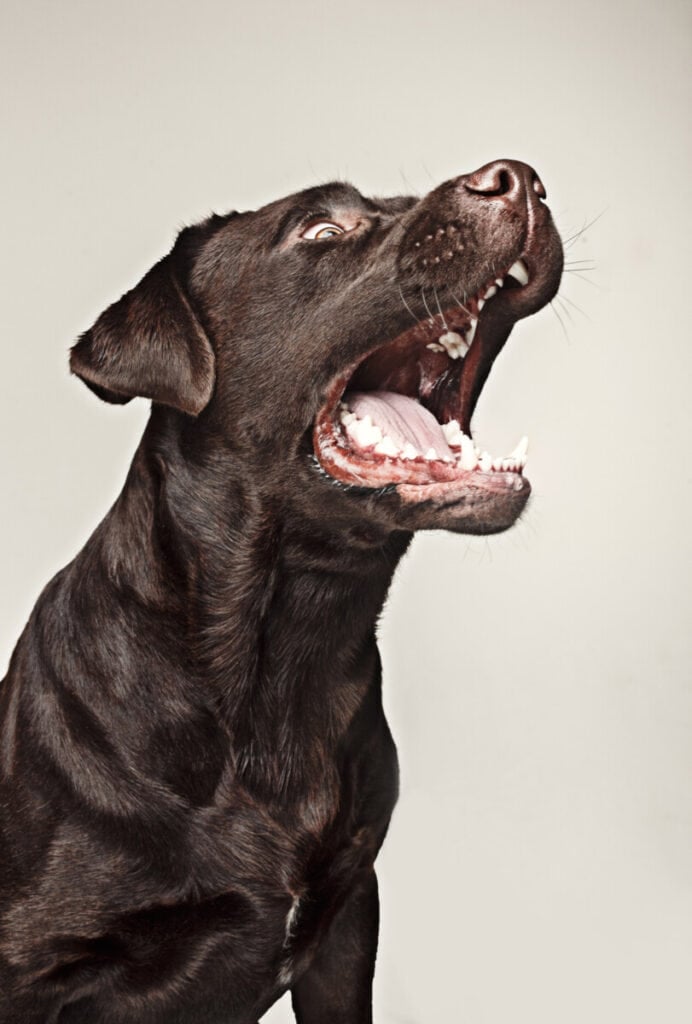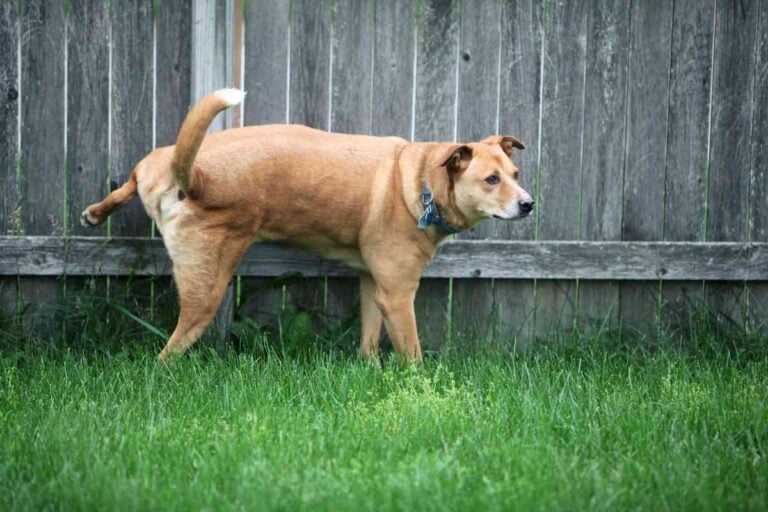At What Age Does a Labrador Retriever Naturally Calm Down? (Solved!)
Labrador Retrievers, or labs as they’re more commonly referred to, are infamous for their lovable, energetic, and friendly nature. The energetic part of their nature is very much beloved to a lot of people, but that energy can often become exhausting, especially if you have a busy schedule. So, if you’re looking into getting a lab, you may want to know if and when your lab will naturally calm down.
Labrador puppies can be expected to calm down between two and four years of age, though sometimes it will occur between twelve and eighteen months. Labs will be pretty hyper during puppyhood, and that is normal. However, Labradors won’t ever calm down completely because they are high-energy dogs.
It is normal for puppies of any breed to be pretty hyper until they reach a certain level of maturity, which is between two and four years. However, if you start to feel like your dog has begun getting hyper all over again for no apparent reason, there could be some sort of underlying cause. Read on if you want or need to know what to do for your overly hyperactive dog!
Why is My Lab so Hyper?
As mentioned earlier, labs are energetic by nature so there probably won’t ever come a point where yours will calm down completely. There’s a good bet that your dog will continue to have high energy levels until it nears the end of its life, however, there may come a point when you start to feel like it has become far more hyper than usual. If this has started to happen, there are a few possible reasons why.
First, you will need to consider your lab’s age. During puppyhood, labs tend to experience quick bursts of energy and then need to lie down and nap. Hyperactivity for a lab under two years old is not abnormal in any way, so you won’t have to worry. Labs will continue to be hyper when they reach adulthood, but that energy should lessen somewhat when they pass the age of two.
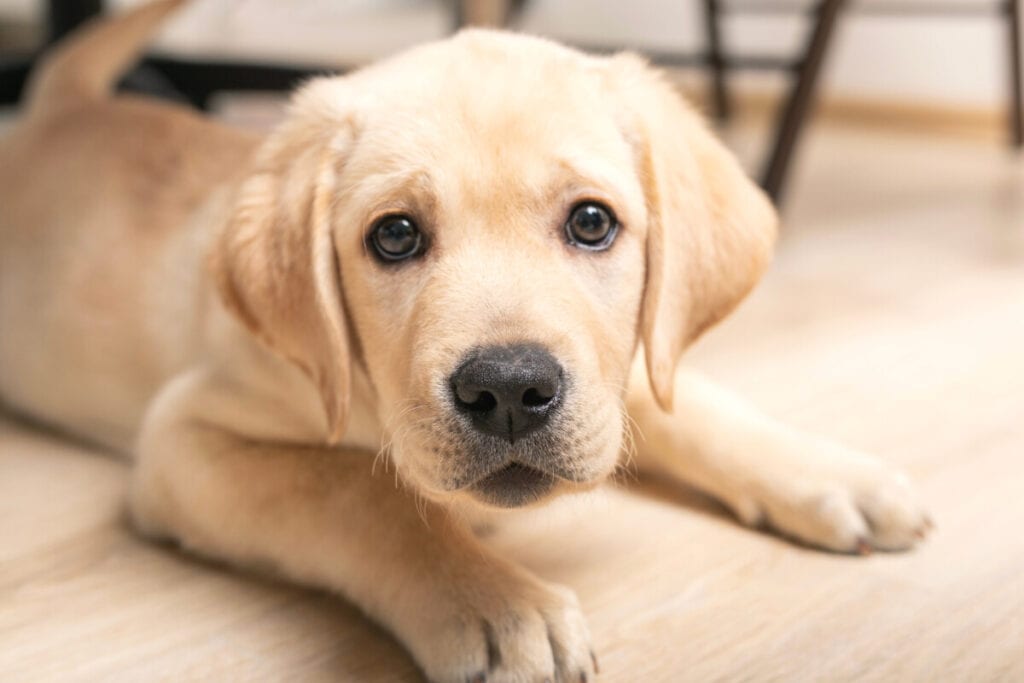
You will need to make sure your lab is getting enough exercise. If you start to notice that your furry friend is bouncing off the walls incessantly, that is likely a sign that they are not getting enough attention or exercise. If that continues, simple hyperactivity could escalate into bad behavior.
A lab that chews on things is another indicator of a lack of exercise or attention. Labs are usually pretty obedient, and they will do as they’re told if they have been well trained. However, if your lab is allowed to get bored and forced to entertain itself, you will likely end up with a lot of chewed shoes and ruined furniture on your hands.
How Can I Calm My Dog Down?
Now that you understand a little more about why your lab might be acting excessively hyper, you undoubtedly want to know what you can do about it. You shouldn’t overreact and assume that all energy you witness is abnormal (because it isn’t for a lab!) but there might come a point when it’s too much for you to handle. Here are some ways to remedy the problem.
First, you should try adjusting your lab’s exercise schedule. Often, a lack of exercise is one of the biggest contributors to an excessive amount of energy. Plus, as mentioned above, it can lead to bad behavior. A Labrador will generally need anywhere from an hour to 80 minutes of exercise every day. If you’re giving it less than that, you’ll undoubtedly have a problem on your hands.
If you’re sick of just walking, though, you should try something new! Don’t limit yourself or your dog to the same old walks every day. Try swimming, frisbee, fetch, or jogging with your pup to give him something new and more vigorous to try. And that’s another thing that could help.
After you’ve gotten all the exercise that you and your dog need, you should try to provide your dog with some activities to do. This could simply mean bouncing a ball around the living room and letting them catch it. This is great for when you’re busy. However, if you want something even more productive and vigorous, you could even consider giving brain games or other training a try.
Caring for a Labrador
A healthy dog is always a happy dog, and a happy dog will exhibit less hyperactivity and less of a tendency to misbehave. That said, there are a few other things you ought to do to keep your lab in good shape. Here are a few important tips that every dog owner should know.
First, you need to keep your pup clean. It may not enjoy bath time at the moment, but you’ll probably thank yourself later for taking the initiative. An unbathed dog will not only smell bad, but it will attract fleas and perhaps even get sick. Bathe your lab no less than once a month, and it should stay nice and clean.
You will also want to keep up on brushing the fur of your lab. Almost all dog breeds shed somewhat, but labs are especially bad in the shedding department because they have such dense coats. These coats leave hair on almost everything they touch, so make sure you’re giving your lab a good brush once a day or so.

Feeding your lab a good diet is also important. Because they are such high-energy dogs, they need a diet that is packed with plenty of nutrients and vitamins that will support their muscles and energy levels. If you are unsure of what this diet should entail, you can consult a veterinarian.
Speaking of veterinarians, make sure you’re meeting all your lab’s veterinary requirements. Labs tend to be pretty healthy dogs who suffer from few health issues. However, there are still problems out there that could affect your lab, so make sure that it is getting all of its regular checkups and all of the necessary vaccinations.

